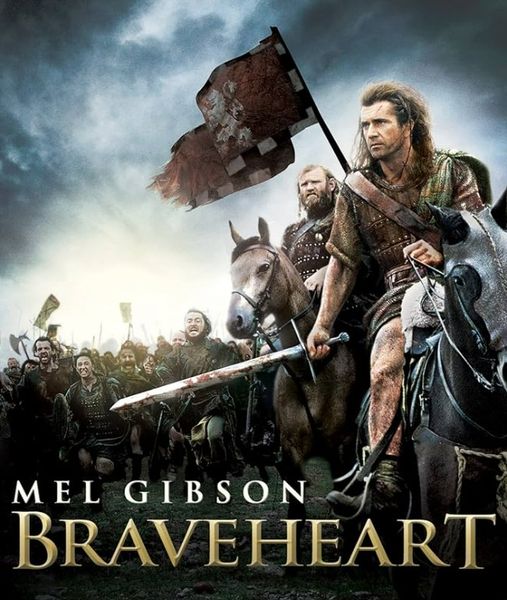Braveheart (1995).5

Title: The Legacy of Freedom: An In-Depth Look at “Braveheart” (1995)
Mel Gibson’s Braveheart (1995) is more than just a historical epic; it is a powerful exploration of freedom, sacrifice, and the indomitable spirit of resistance. Set against the backdrop of 13th-century Scotland, the film tells the story of William Wallace, a warrior who leads his countrymen in a struggle for independence from English rule.
Plot Summary
The film opens with a young William Wallace witnessing the brutal execution of his father and brother by English soldiers. Orphaned and traumatized, Wallace is raised by his uncle and grows up to become a man of remarkable courage and integrity. As he returns to his village, Wallace finds himself drawn into the political turmoil of the time. His personal vendetta against the English Crown evolves into a full-scale rebellion as he inspires the Scottish people to fight for their freedom.
Wallace’s journey is marked by a series of dramatic battles, strategic alliances, and betrayals. His leadership and fierce determination galvanize the Scottish forces, culminating in the legendary Battle of Stirling Bridge. Despite the film’s portrayal of Wallace as a national hero, it also delves into the complexities of his character, highlighting his deep love for his homeland and the personal sacrifices he makes for the greater cause.

Themes and Significance
Braveheart resonates on multiple levels. At its core, the film is a celebration of the human spirit and the relentless pursuit of freedom. Wallace’s fight against oppression is emblematic of the universal struggle for self-determination and justice. The film’s iconic line, “They may take our lives, but they’ll never take our freedom,” captures the essence of this theme and has become a rallying cry for those who seek to break free from tyranny.
The movie also explores the concept of leadership and the impact of personal sacrifice. Wallace’s willingness to put everything on the line for his cause demonstrates the power of conviction and the lengths to which individuals will go to uphold their principles. His story serves as a reminder of the importance of standing up for what one believes in, even in the face of overwhelming odds.

Historical Accuracy and Impact
While Braveheart takes significant liberties with historical facts, it succeeds in capturing the emotional essence of the Scottish struggle for independence. The film’s dramatic portrayal of historical events, combined with its stirring score and powerful performances, has left a lasting impact on audiences and continues to inspire discussions about history and heroism.
In conclusion, Braveheart is more than just a film about a historical figure; it is a powerful narrative about the human quest for freedom and the courage to fight for one’s beliefs. Through its compelling storytelling and memorable performances, it remains a timeless tribute to the enduring spirit of resistance and the quest for justice.
Driven by vengeance and a desire for freedom, Wallace rallies his fellow Scots to rise up against the oppressive rule of King Edward I of England, also known as “Longshanks” (Patrick McGoohan). As Wallace’s army grows, they achieve a series of victories against the English, culminating in the iconic Battle of Stirling Bridge. Wallace’s leadership and unyielding spirit inspire a nation to fight for its freedom, even as he faces betrayal and immense personal sacrifice.











